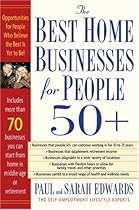by Broderick Perkins
© 2009 DeadlineNews.Com
Unauthorized use of this story is a copyright violation -- a federal crime

Deadline Newsroom - Financing the purchase of a home could be the most complex financial decision you'll ever endure.
You need all the help you can get.
"There are so many resources online today that there are simply no excuses for not doing your homework and some basic due diligence," said Nancy Osborne, chief operating officer of Erate.com, a Santa Clara, CA-based financial information publisher and interest rate tracker.
To help get you started with the basics, the Federal Reserve offers "5 Tips for Shopping for a Mortgage," because, well, the fundamentals always apply.
Don't bite off more than you can chew. Check your budget. You must have a budget so you can estimate what you can afford to pay for a home, including the mortgage, property taxes, insurance, and monthly maintenance and utilities.
You also have to have enough, after your mortgage payment, to save for emergencies. Plan ahead to have enough to afford your monthly mortgage payments for several years. Check your credit report to make sure that the information in it is accurate. A higher credit score may help you get a lower interest rate on your mortgage. A lower interest rate means a lower payment.
Shop around. Online and off, shop lenders, brokers, credit unions, government (city, county state) programs, even seller financing. Shopping around is a bear, but it can save you thousands of dollars.
Understand costs. Shopping around means scrutinizing loan costs and fees not just the annual percentage rate (APR). On any given day, lenders and brokers may offer different interest rates and fees to different consumers for the same loan, even when those consumers have the same loan qualifications. Keep in mind that lenders and brokers also consider the profit they receive if they get you to agree to higher fees, higher points, or a higher interest rate.
Learn risks, benefits of loan options. Mortgages have many features -- fixed interest rates, adjustable rates, payment adjustments, interest-only payments, prepayment penalties, balloon payments, yield spread premiums (broker commissions) and more. Consider all the features, including the APR and the settlement costs.
Have your lender calculate how much your monthly payments could be a year from now, and 5 or 10 years from now, especially if you get an ARM. A mortgage shopping worksheet can help you identify the features of different loans. Mortgage calculators can help you compare payments and the equity you could build with different mortgage loans.
Get advice from those you trust. Ask family, friends, co-workers, professional associates and others you trust for referrals. Talk with a trusted housing counselor or a real estate attorney that you hire to review your documents before you sign them.
You can find a list of counseling resources at NeighborWorks and on the U.S. Department of Housing and Urban Development's (HUD) website or by calling (800) 569-4287.
"A clear lesson for the mortgage consuming public to take away from the past few years is to never sign onto a loan that you do not fully understand," Osborne said.
"Loan officers and mortgage brokers are by and large salespeople whose compensation is based upon the type of loan and terms a consumer agrees to and therefore they cannot always be relied upon to offer objective, independent advice as to the type of mortgage that best suits your interests," she added.
For more mortgage shopping details, see: "Looking For The Best Mortgage."
• Click on the keywords below for more stories on this subject.
© 2009 DeadlineNews.Com
Advertise on DeadlineNews.Com | Shop DeadlineNews.Com
Get "News that really hits home!" for your Web site or blog from the DeadlineNewsGroup.Com.
You are reading a sample of "News that really hits home!", now available from several beats and published in a growing number of locations.
Broderick Perkins, an award-winning consumer journalist, parlayed 30 years of old-school journalism into a digital real estate news service, the San Jose, CA-based DeadlineNews Group, including DeadlineNews.Com, a real estate news and consulting service and Web site, and the Deadline Newsroom, DeadlineNews.Com's news back shop.
Perkins is also the first Examiner to cover three beats for the Examiner.com news service:
• National Offbeat News Examiner
• National Consumer News Examiner
• National Real Estate Examiner
DeadlineNews.Com's Editorial Content Is Intellectual Property • Unauthorized Use Is A Federal Crime
Read more!




